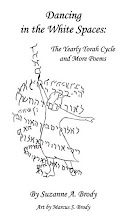This summer, I read a great novel. Many of you may have read it, too. If not, I definitely recommend it. The Friday Night Knitting Club by Kate Jacobs tells the story of a woman named Georgia Walker. Georgia is a remarkable woman, a single mother who successfully managed to start her own business and raise her daughter by herself. Then, 12 ½ years after he left, the father of her daughter reappears in Georgia’s store. Around the same time, another ghost from Georgia’s past also reappears – a high school friend who had promised to attend the same college as Georgia. But, when the friend went back on her promise, she and Georgia stopped speaking and lost touch with one another. The reappearance of these two important pieces of her past understandably throws Georgia into a state of emotional turmoil. Should she let these people back into her life? Both of them were people with whom Georgia was very close. One was her best friend. They did everything together and they shared all of their hopes and dreams with each other. The other was her boyfriend, and they shared an emotional as well as a physical connection. Yet, precisely because they were so close to her, both of them hurt her rather badly when they disappeared. It took her years to get over the hurt of their betrayal, if, in fact, she got over the betrayals at all. As these characters reappeared in Georgia’s life one immediately after the other, I had to wonder at the coincidence. It seemed a little bit contrived to me that both a former best friend and a former boyfriend, the father of her daughter, would reappear in Georgia’s life at roughly the same time. My first reaction to this part of the story was that most of us don’t get one second chance like Georgia, let alone two.
But that’s actually not true. Every year, our tradition reminds us that there is always another chance to make things right with the people in our lives. We are taught that prayer and repentance atone for the sins which one commits against G-d, the transgressions we call bein adam l’makom. In other words, when we forget to pray during the week, or even on Shabbat, or to say a blessing when we eat, that is a matter between us and G-d. So, G-d can forgive us when we repent and vow to try harder next week or next year. But, as the Mishnah (Yoma 85b) teaches, when we hurt each other, when we commit a transgression bein adam l’adam, whether deliberately or accidentally, G-d cannot forgive the offender until he or she has made a sincere effort to obtain forgiveness from the injured party.
Furthermore, our tradition teaches us that it is not enough to ask someone’s forgiveness only once for a hurt we have caused. Rather we must ask once. If the person that we have hurt does not forgive us, then we must come back and ask again. Rav Chisda teaches that a person must come with three friends three times to ask forgiveness from someone he or she has wronged. But once we have sincerely sought a person’s forgiveness three times with no success are we free to stop seeking it, according to R. Yosi b'Rebbi Chanina. (Yoma 87b)
Why does the Jewish tradition place such emphasis on seeking forgiveness from one another? Shalom bayit, peace within a house, is a goal for which we strive at all times. Georgia’s high school friend and former boyfriend are lucky that they did not wait too long to seek Georgia’s forgiveness. We all know how uncertain life is. We read about tragic deaths in the newspaper, we mourn the losses in our own communities, and in our own lives. At no time are we more aware of the fragility of life and death than we are right now, standing on the cusp of a new year. On December 31st, we join our fellow Americans in making New Years resolutions to eat less and exercise more, to skip the second brownie and to actually go to the gym at least once. On Rosh HaShanah, we resolve to become better people, to increase the peace in our houses, and repair the damage that we may have caused in the world. On Rosh HaShanah and the week that follows, we ask forgiveness of each other for all the many ways in which we hurt each other. We think about friends and family members with whom we have lost touch, and we reach out to them. This is our chance to make amends. No one should have to wait twelve and a half years to reconnect with someone, like Georgia did in the Friday Night Knitting Club. Don’t let another year, or even another day, pass you by without taking steps to create shalom bayit, to bring peace into your household.
L’shanah tova tikateivu
May you be inscribed for a good year, a year of shalom bayit, peace in your house, a year in which you reconnect with the important people in your life.
Subscribe to:
Post Comments (Atom)

No comments:
Post a Comment